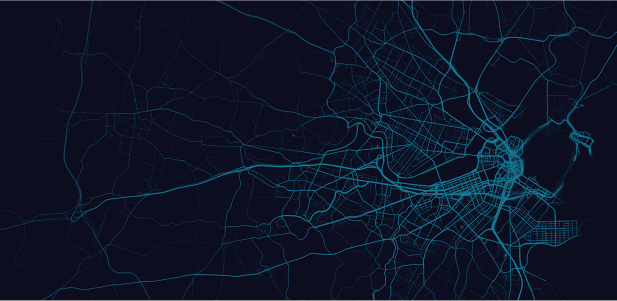Uber has announced a “first-of-its-kind” partnership that will see its data used to improve life on the roads in Boston.
The e-transport startup says the initiative will help city planners “manage urban growth, relieve traffic congestion, expand public transportation, and reduce greenhouse gas emissions.”
While Uber’s intentions seem sound on the surface, its recent history of misusing customer data still lies fresh in the memory. Back in November, Uber hit the headlines when reporters discovered its corporate employees sometimes used a so-called “God View” to track riders’ locations. Senator Franken later pressed Uber CEO Travis Kalanick in an open letter to explain how the company’s privacy policies were communicated and enforced.
Big data experiment
The partnership with Beantown authorities is different, however, insofar as it could prove a genuinely fruitful big data experiment. There is little question that Uber holds a ton of location-focused information, so harnessing this for the greater good could work well. However, given Uber’s recent refusal to hand over data to authorities in New York, despite a rule by the Taxi and Limousine Commission (TLC) requiring taxis to do so, this move is quite notable.
A few more details on this latest deal: Uber says it will provide trip-level data, including date and time of trips, the zip code area(s) of where the trip started/ended, distance traversed, and duration. Uber will also work with Boston to analyze the data to make more sense of it.
The data could be used to show where people travel most often, at what times, and for how long. This could help inform decisions around improving congestion at key times, including parking and zoning developments that may be required. It could even be used to justify spending on new public transport options on specific routes.
“In Boston, data is driving our conversations, our policy making, and how we envision the future of our city,” explains Mayor Martin J. Walsh in a blog post. “We are using data to change the way we deliver services and we welcome the opportunity to add to our resources. This will help us reach our transportation goals, improve the quality of our neighborhoods, and allow us to think smarter, finding more innovative and creative solutions to some of our most pressing challenges.”
Uber clearly has bold aspirations here: It refers to the program as a “new standard for the future development of our cities.” But it’s also more than aware that it needs to clean up its reputation when it comes to how it uses customer data. This is why Uber is quick to point out that its data is anonymized, so city officials shouldn’t be able to personally identify users.
At any rate, a quick look at Uber’s privacy policy reveals that what it’s doing is above-board, because all Uber users agree to have their data used, including geo-location, trip history, credit card information, and transaction history. The wording users sign off on says the data will be used not only to “comply with our legal and regulatory obligations,” “resolve disputes,” or “prevent fraud” but “for other business reason” too.


